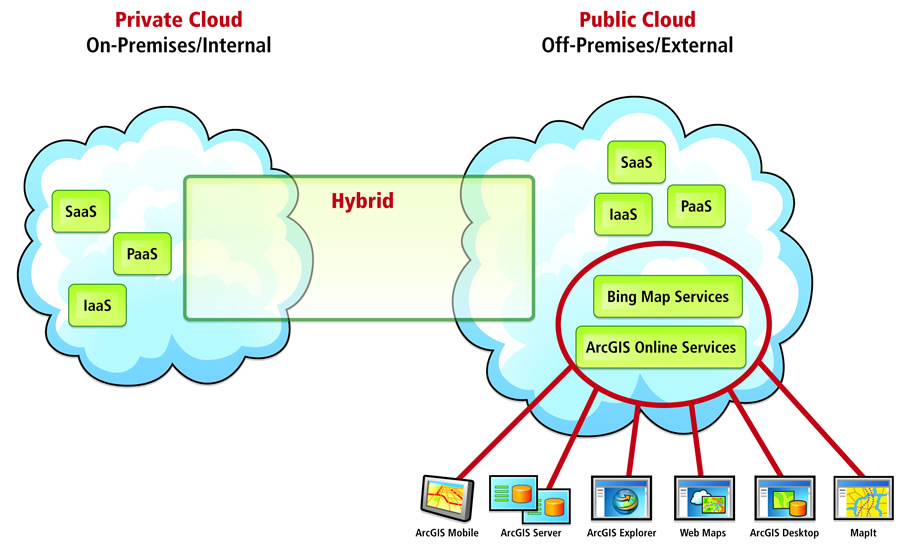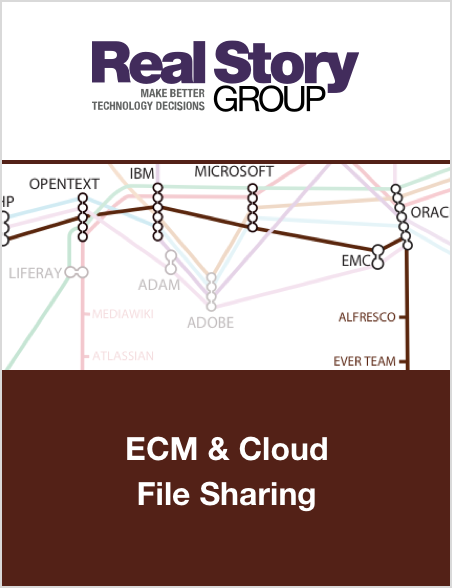Hybrid Cloud Models for ECM
“Hybrid Cloud” is a deployment architecture that combines two or more different cloud-based deployment models (public, private, community, et al.). Given the sensitivity around enterprise documents, enterprise content management (ECM) has emerged as an area ripe for hybrid cloud solutions.
Not surprisingly, ECM vendors are increasingly claiming support for hybrid cloud. Even public cloud-based file sharing and sync vendors are working on it. And indeed, our research has found that most (though not all) vendors have indeed improved their capabilities in this area.
However, as with most other things in the tech world, definitions and practices around hybrid will differ. So as you evaluate your ECM needs, keep in mind these different hybrid variants.
Image source: Wikimedia Commons
Hybrid Cloud Variants
Within the ECM technology space, you'll find at least three major architectural models.
- You can install different components of the solution in different environments. You could for example, install one module (say document management) on Amazon, and another module (such as imaging) in-house, perhaps connected to an internal directory server.
- Single application instance with multiple storage locations, so you can select your own storage environments based on your needs but use the same application instance.
- Finally, you can have two completely different instances of the application, each with its own storage, syncing with each other connectors.
What You Should Do
In the end, you may not have much choice here, because your preferred or incumbent vendor follows only one (or none) of these models.
So you'll want to investigate the details of what any ECM vendor means when they say “hybrid,” and set expectations accordingly.
In RSG's ECM and Cloud File Sharing research, we increasingly focus on hybrid and cloud capabilties for each vendor we evaluate. Feel free to ping me directly with any questions.








